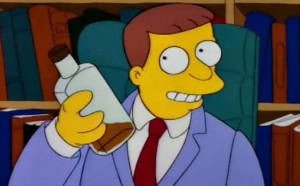Robert Frost once said:
A jury consists of twelve persons chosen to decide who has the better lawyer.

Choosing the right lawyer is a decision that can have a profound effect on the outcome of your case. A good lawyer will do everything they can to protect your rights while a bad lawyer can lead to you getting falsely convicted. The Innocence Project lists bad lawyering as one of the leading causes of false convictions. The difference between truly professional lawyers and bad lawyers is even more pronounced in DUI cases where the bulk of the evidence is scientific and complex.
So how can the average client tell the difference between a good lawyer and a bad one?
Here are some tell-tale signs for you to keep in mind:
| Professional DUI Lawyer | Wannabe (DrumpTruck) DUI Lawyer |
|---|---|
| Goal: To Thoroughly and aggressively defend the rights of their clients | Goal: To process their cases as quickly as possible |
| Limits their caseload to ensure every case is given the proper amount of time and attention | Takes on as many clients as possible |
| Takes cases to trial and fights in the courtroom | Pushes for a lot of guilty pleas and quick deals |
| Wants to fight your case | Wants to get rid of you fast |
| Shows their commitment to DUI defense by spending their time and money to attend advanced DUI seminars | Relies only on what they learned in law school (which is nothing about DUI) |
| Is willing to provide references from the top lawyers in the country | The top lawyers in the country don’t know them |
| Uses expert witnesses at trials | Doesn’t go to trials in the first place |
| Speaks in specific confident terms and keeps you informed | Speaks in general non-specific terms and doesn’t focus on the details of the case |
| After all is said and done has done everything they can to get the best result possible | Leaves you asking yourself “What if I had chosen a Professional?” |
William Maze says:
Absolutely spot on, as usual. But no matter how many times the message is repeated, most of the general public believes that all lawyers provide adequate representation.
Justin McShane says:
I guess it comes down to what is your goal. We only pick up cases that we know we can make a meaningful difference. Otherwise, we are just robbing folks of their hard-earned money. That should have been another comparison point. They will take any old case regardless of the merits. We will only take on a case if we know we can really help.